TV Celebrities Posts on Crowch
In 2025, Timothée Chalamet
is more than just a star. He has become a kind of mirror in which Generation Z
and young millennials see not so much a hero as a collection of their fears,
desires, and contradictions. There isn’t a trace of conventional Hollywood hero
worship in his image — and that is precisely what makes him a central figure of
our time, when the cult of strength has given way to an aesthetic of
vulnerability.
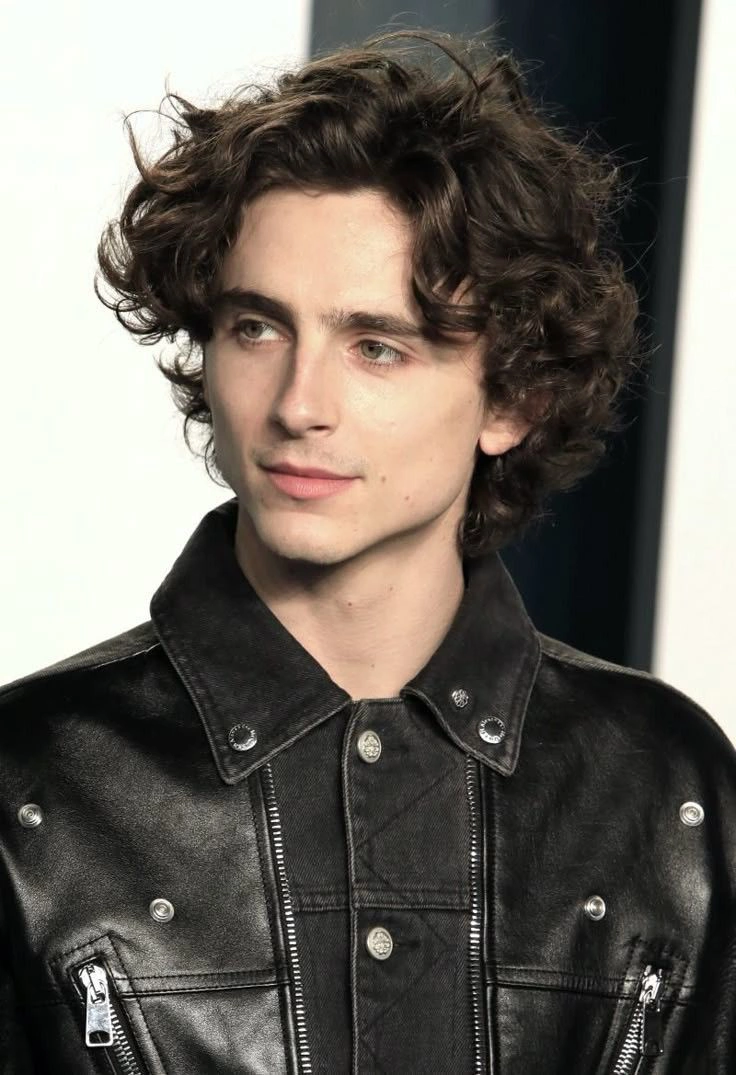
When people talk about the
new wave of Hollywood actors, Timothée Chalamet’s name is rarely left out. As
early as 2021, he had firmly established himself as one of the most promising
actors of his generation with his lead role in Denis Villeneuve’s Dune.
His portrayal of Paul Atreides — intense and composed — perfectly captured the
archetype of a modern hero: complex, ambiguous, deeply human. With the release
of the second part in 2024, Chalamet’s character evolved fully into the leader of
the Fremen, further cementing his status as a sci-fi star.
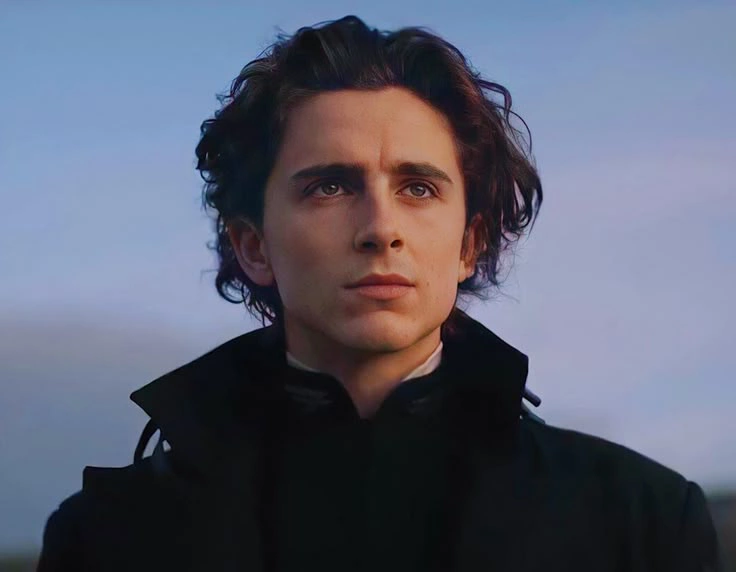
The beginning of 2025
marked a new milestone in his career: the world saw the biopic Bob Dylan:
Nobody Knows, where Chalamet not only starred but also joined the producing
team. This decision signals his growing interest in the filmmaking process
beyond acting — from selecting the material to the final cut. The film focuses
on a pivotal moment in Dylan’s life, when he shifted from folk to rock music.
Preparing for the role was meticulous: Chalamet reviewed archival performances,
learned to play the harmonica, and took vocal lessons, aiming not to imitate
but to embody his own interpretation of the musical rebel.
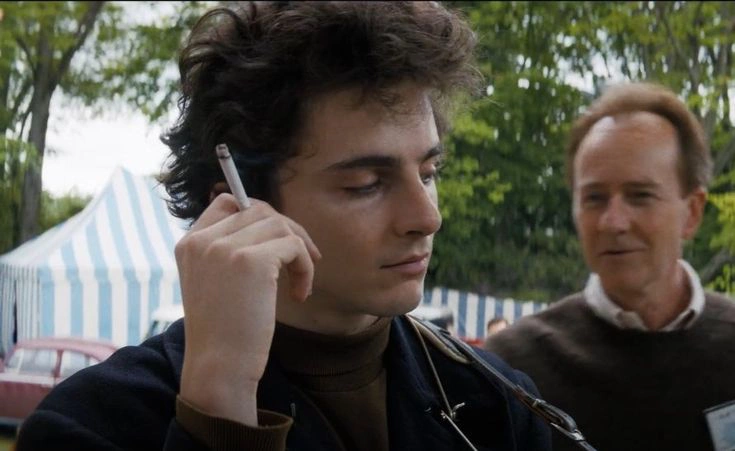
Earlier, in 2023, Chalamet
introduced the world to his Willy Wonka in the musical prequel about the famous
character. Despite initial skepticism surrounding the project, his portrayal
was praised for its delicate blend of emotional depth and theatrical flair.
This reaffirmed Chalamet’s ability to reinterpret well-known characters, giving
them fresh dimensions.
Today, his name is linked
to several upcoming projects. Industry insiders discuss his possible
involvement in a film about Stephen Hawking’s youth as well as an adaptation of
The Catcher in the Rye. Moreover, it’s likely that Chalamet will reunite
with Luca Guadagnino — their previous collaborations Call Me By Your Name
and Bones and All were hailed by critics as emotionally daring and
courageous.

Off-screen, the actor
remains a curious and thoughtful individual. In interviews, he often speaks
about the challenge of balancing an intense work schedule with personal life.
His interests include football (he once seriously considered a professional
career), music, and classical literature. He draws inspiration from Heath
Ledger and Daniel Day-Lewis — actors known for their profound depth and total
dedication.
Beyond his career, Chalamet
embraces social responsibility. After working on a Woody Allen film, he donated
his fee to organizations supporting victims of abuse, including the Time’s Up Foundation
— a rare and courageous gesture for someone of his age and status.
Chalamet is one of the few
who manages to stay authentic in an industry demanding constant reinvention. He
walks a fine line between blockbusters and auteur cinema, fashion covers and
heartfelt interviews, global fame and an inner moral compass. It’s no surprise
that many call him the voice of a generation — even if he himself disagrees.
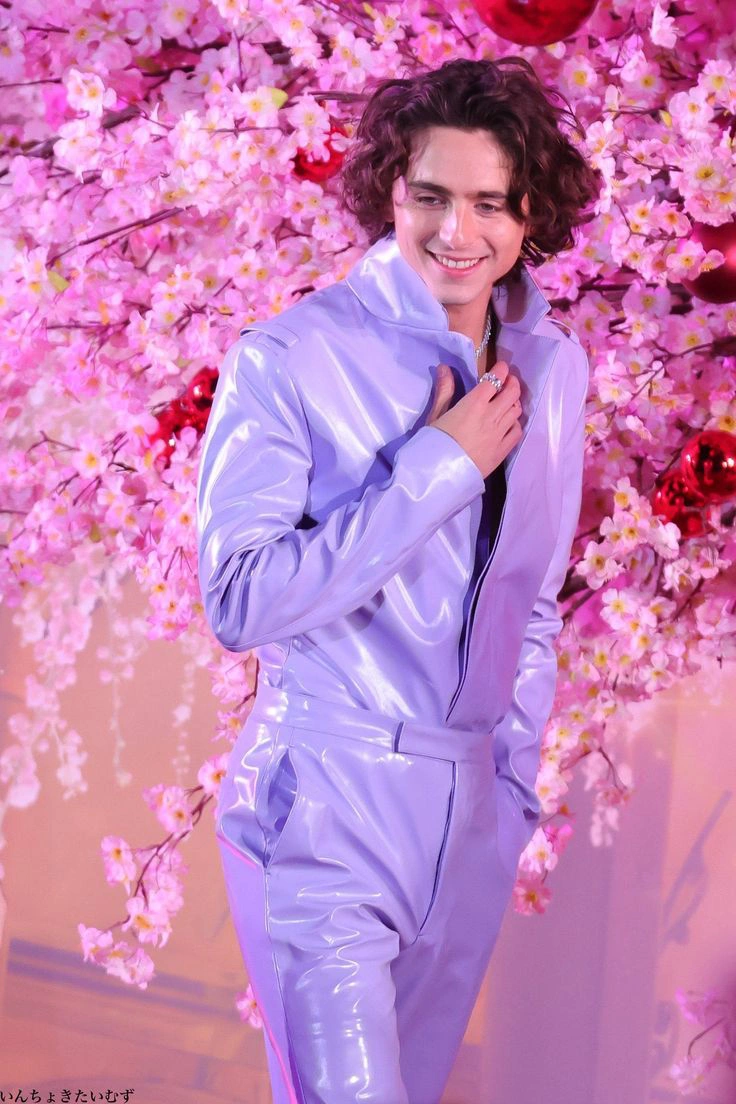
On the horizon are
ambitious plans: producing, a possible directorial debut, and a relentless quest
for stories that truly resonate. As he puts it: “I want cinema to awaken
emotions. Even if those emotions are uncomfortable — the main thing is that
they are real.”
Timothée has long been an
emblem of post-heroic culture. His androgynous, almost ethereal appearance
defies traditional glossy standards. But this isn’t a weakness — it’s the new
norm. He doesn’t try to be rugged; he grants himself the right to be sensitive.
In 2025, this is no longer eccentricity but a new form of masculinity, where
it’s acceptable to not know, to be uncertain, to not always win.
Yet, what defines Chalamet
most isn’t talent or charisma. It’s his ability not to impose. He doesn’t
dictate trends or tell people who they should be. He simply exists in his own
rhythm. In one of his rare columns, he wrote, “Maybe being quiet is a form of
protest.” This phrase is the quintessence of his cultural code.
He has become a symbol of
uncertainty — not as weakness, but as depth. His characters rarely solve
problems; they live through them. Chalamet shows that strength lies not in
victory but in surviving — wounded, imperfect, human. For viewers raised amid
climate anxiety, political distrust, and post-pandemic fatigue, such honesty is
worth more than any superhero triumph.
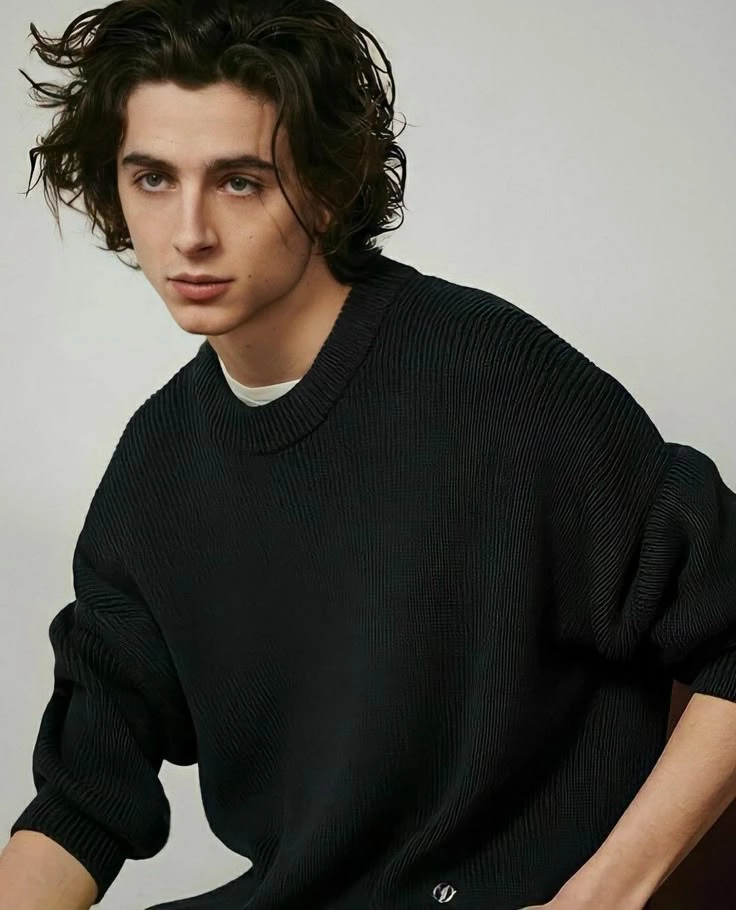
In a world that pressures
us to be someone else, Timothée Chalamet offers the luxury of being oneself.
Without final punctuation, without ready answers. And that is exactly what
makes him not just an actor, but the intuition of a generation.
Today, Zendaya is widely
recognized as the true voice of Generation Z and one of the brightest stars of
her time. Although she is only 28 years old, she is already among the
highest-paid actresses in Hollywood. Moreover, Zendaya is the youngest-ever
recipient of an Emmy Award. In this article, we’ll explore how her career
began, the heights she has reached, and how she manages to balance acting with
activism.
The future star was born in
1996 in California. Interestingly, acting wasn’t a random choice for her:
Zendaya’s mother worked as the head manager at the California Shakespeare
Theater in Orinda. After school, the young Zendaya often accompanied her mother
to rehearsals, which likely laid the foundation for her love of the stage.
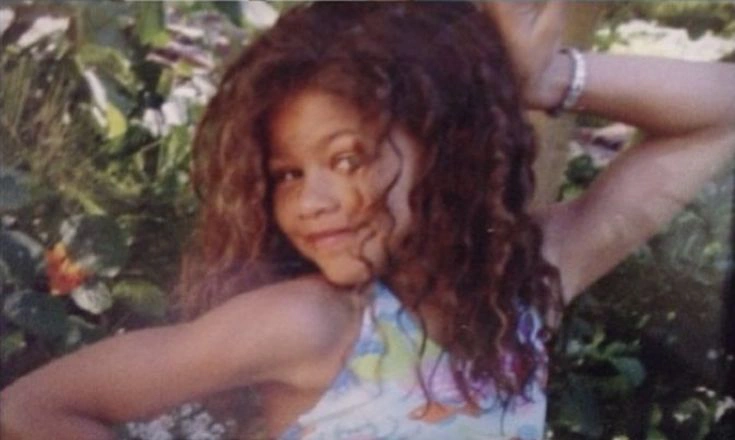
Zendaya’s desire to become
an actress appeared early on. Even in elementary school, she auditioned for
plays — at her first audition, she landed the role of a silkworm in a
production of James and the Giant Peach. Although she had no lines, she
gave it her all to make the character memorable and later said she became “the
best silkworm” of them all.
Alongside acting, Zendaya
pursued dance — she was passionate about hip-hop from the age of eight and
danced with the Future Shock dance troupe. By age thirteen, she realized that
her small hometown wouldn’t allow her to fulfill her full potential and told
her parents she dreamed of a career as a star and acting in teen TV shows. Her
parents believed in her talent: her father quit his job and moved with her to
Hollywood, while her mother took on extra work to support the family.
Thanks to her family’s
support, Zendaya quickly began appearing on television. She landed one of the
lead roles in the Disney series Shake It Up, playing Raquel “Rocky”
Blue, a dancer. This project marked her TV debut after appearing in a Selena
Gomez music video.
Zendaya’s character was
calm, rational, and disciplined — qualities that matched her dance background
and school life. Even then, Zendaya showed strong principles: she refused to
kiss on camera and negotiated a compromise so her on-screen partner would kiss
her on the cheek instead.
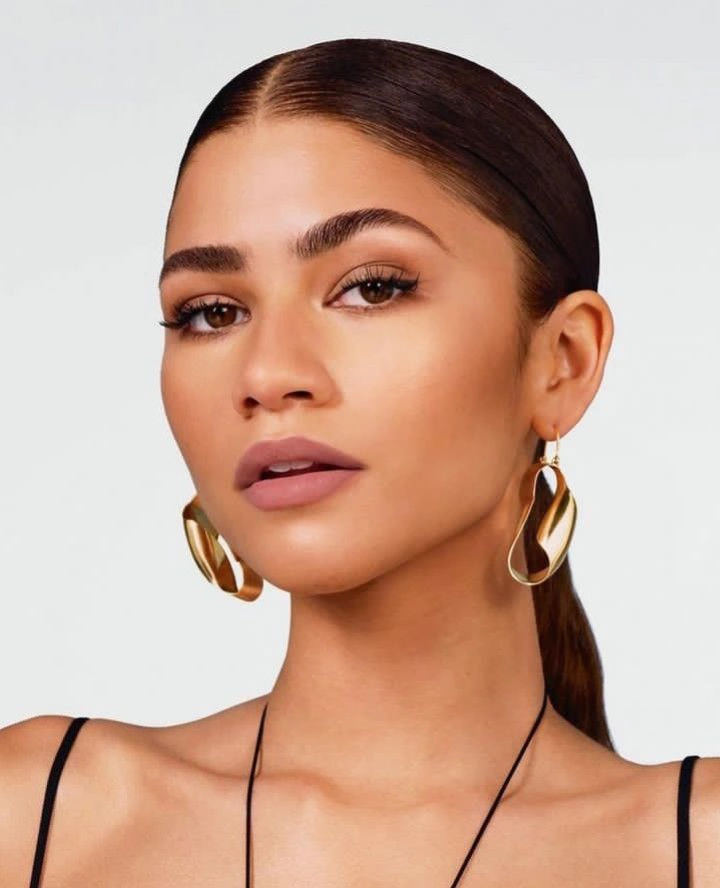
In 2015, Disney premiered
the show K.C. Undercover, where Zendaya starred as a high school super
spy. By then, she was 19 and had become a producer on the series. The show
stood out for its feminist tone and modern approach. Zendaya insisted that her
character not be a perfect superhero, but rather a relatable, even slightly
awkward, yet strong and independent young woman.
Parallel to acting, Zendaya
also tried her hand at music. She recorded duets with Bella Thorne for Shake
It Up and released an album, but in 2016 she decided to end her solo music
career. Later, she contributed to soundtracks for the series Euphoria
and performed at the Coachella festival.
After K.C. Undercover
ended in 2018, Zendaya starred in The Greatest Showman and Spider-Man:
Homecoming. In the latter, she played MJ — Peter Parker’s smart and
somewhat reserved classmate, whose romance with him becomes her first love
experience. The role was memorable, and she reprised it in the franchise’s
sequels.

However, Zendaya’s real
global breakthrough came with the dramatic series Euphoria (2019), where
she portrayed Rue — a high schooler struggling with drug addiction. For this
role, she won two Emmy Awards and a Golden Globe. The transition from
lighthearted teen roles to complex drama was a serious challenge for Zendaya —
she worried about how the change would be received. But she took the risk and
proved her capacity for deep, multifaceted performances.
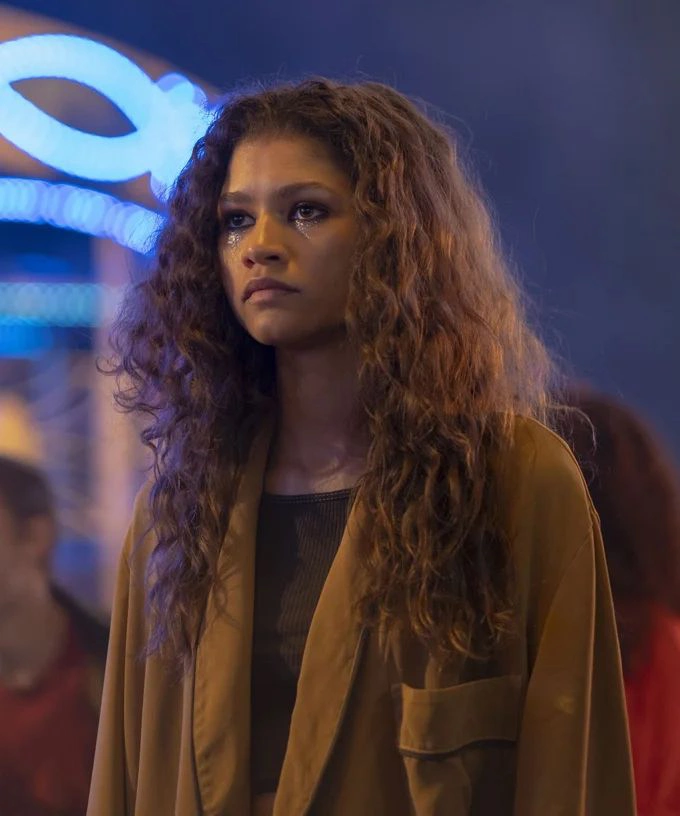
Euphoria creator Sam Levinson developed
Rue’s character alongside Zendaya, taking into account her personal growth and
emotions. Although Zendaya has never dealt with drug addiction herself, she
deeply understood the loneliness and inner turmoil of teenagers. Two seasons of
Euphoria have been released so far, with a third and final season
expected no earlier than 2025. Zendaya reportedly earns about a million dollars
per episode, making her one of the highest-paid young actresses on television.
Beyond her artistic
success, Zendaya is an outspoken advocate against unrealistic beauty standards.
In 2015, she publicly condemned excessive retouching of her photos in a glossy
magazine and shared unfiltered images with her fans.
This kind of star is not a
return to old Hollywood icons, but the birth of something entirely new. Not
just a symbol, not just an artist — but a cultural architect. Someone who
brings generations together on a common ground of meaning.
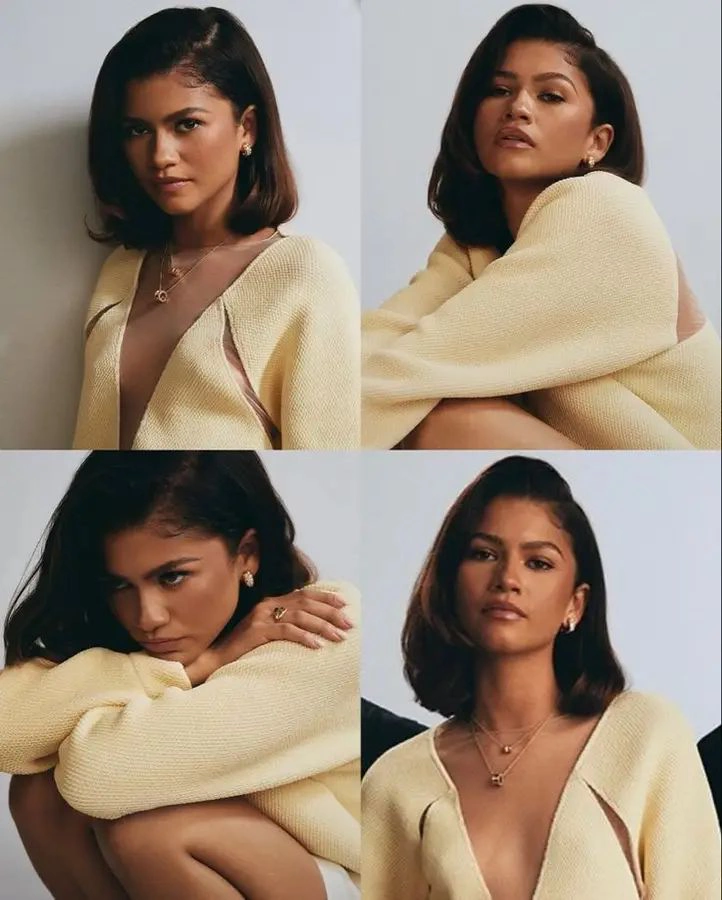
So why is she the voice of
her generation? Because she’s not afraid to be controversial. Because she
unites opposites — vulnerability and strength, art and activism, glamor and
truth. Because she doesn’t fit in — she rewrites the rules.
And most importantly — she
doesn’t just inspire. She gives tools. And that is far more valuable than
applause.
And which actress of the year 2025, in fact, are you? 🔥